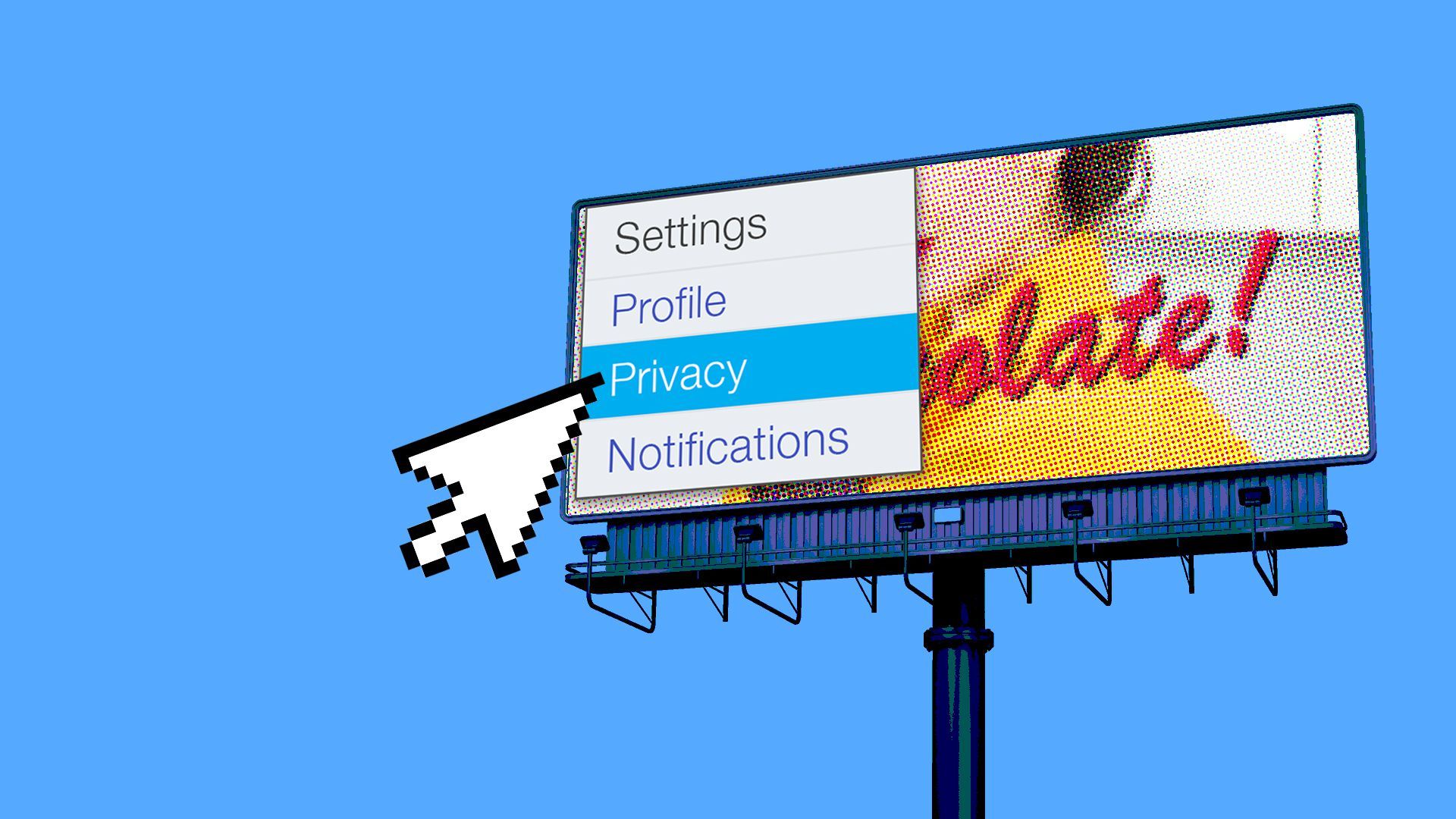California voters back data privacy ballot proposition

- Kia Kokalitcheva, author ofAxios Pro Rata

Illustration: Sarah Grillo/Axios
Californians approved of a ballot proposition aimed at “fixing” loopholes in the California Consumer Privacy Act and beef up the enforcement resources available by setting up a new agency.
Why it matters: The CCPA, which took effect January 2019, has been closely watched by other states as a potential model for privacy legislation. But it’s also faced criticisms, including that it gives social media companies too many easy workarounds.
Details: Under the CCPA, companies that “share” user data with other services ( as opposed to “selling" it) and those who use customer data for a “business purpose” can ignore users' choice to opt out of letting companies use their data. "Business purpose" can include online ad targeting.
- The new proposition ends that exemption and requires more companies, including those that sell targeted ads, like Facebook — to respect those opt-outs.
- It will also beef up the enforcement resources available by setting up a new agency with $10 million in funds.
Yes, but: It's also been criticized, including by privacy advocates like the Consumer Federation of California, the Electronic Frontier Foundation and the ACLU's California arm, for some of its fine print.
- Specifically, critic say it further entrenches companies' ability to charge users who opt out of sharing their data, which might impact already disadvantaged users who can't afford that cost.
- Critics also say the proposition should have broadened those who are eligible to sue companies beyond state officials to individual users.
- Some wanted the proposition to require that companies treat all user data collection as an "opt-in" arrangement rather than a default that users can opt out of.
Moreover: Other state and city-level ballot measure are also likely to affect Silicon Valley.
- San Franciscans voted in favor of Prop. L, which will tax companies that pay the highest-earning employee (often the chief executive) 100 times or more than the median salary of its San Francisco workers, starting in 2022.
- They also voted in favor of Prop. F, which will phase out the city's payroll-based business taxes in favor of a tax on gross receipts. It will also increase registration fees and taxes for some larger companies, and decrease taxes on small businesses with less than $1 million in gross receipts. Large tech companies would likely see bigger tax bills.
- Californians voted in favor of Prop. 22, which lets gig economy companies like Uber, Lyft, and DoorDash treat their drivers as independent contractors instead of reclassifying them to be employees, as a recently approved law required.
Go deeper: